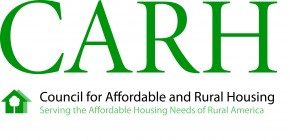- November 2022
- October 2022
- September 2022
- August 2022
- July 2022
- June 2022
- May 2022
- April 2022
- March 2022
- February 2022
- January 2022
- December 2021
- November 2021
- October 2021
- September 2021
- August 2021
- July 2021
- June 2021
- May 2021
- April 2021
- March 2021
- February 2021
- January 2021
- December 2020
- November 2020
- October 2020
- September 2020
- August 2020
- July 2020
- June 2020
- May 2020
- April 2020
- March 2020
- February 2020
- January 2020
- December 2019
- November 2019
- October 2019
- September 2019
- August 2019
- July 2019
- June 2019
- May 2019
- April 2019
- March 2019
- February 2019
- January 2019
- December 2018
- November 2018
- October 2018
- September 2018
- August 2018
- July 2018
- June 2018
- May 2018
- April 2018
- March 2018
- February 2018
- January 2018
- December 2017
- November 2017
- October 2017
- September 2017
- August 2017
- July 2017
- June 2017
- May 2017
- April 2017
- March 2017
- February 2017
- January 2017
- December 2016
- November 2016
- October 2016
- September 2016
- August 2016
- July 2016
- June 2016
- May 2016
- April 2016
- March 2016
- February 2016
- January 2016
- December 2015
- November 2015
- October 2015
- September 2015
- August 2015
- July 2015
- June 2015
- May 2015
- April 2015
- March 2015
- February 2015
- January 2015
- December 2014
- November 2014
- October 2014
- September 2014
- August 2014
- July 2014
- June 2014
- May 2014
- April 2014
- March 2014
- February 2014
- January 2014
IRS Publishes Rule on Average Income Test
BROADCAST EMAIL – Regulatory Update
The Internal Revenue Service (IRS) published a proposed rule in the October 29th Federal Register entitled, “Section 42, Low-Income Housing Credit Average Income Test Regulations.” Once finalized, the rule would provide guidance on implementation of the Average Income Tax (AIT), as established by the Consolidated Appropriations Act of 2018, which allows owners of Housing Credit properties (for purposes of the tax code, the “taxpayer”) to elect to serve households earning as much as 80 percent of area median income (AMI), as long as the income designations of the units in the property average no more than 60 percent of AMI.
The proposed rule provides that if a property has multiple over-income homes, it does not need to meet the next-available-unit rule in a particular order. The proposed rule also provides flexibility in initially designating units, which needs to occur by the end of the first taxable year. Thereafter, the IRS proposes limits on subsequent changes and a process to address units going offline.
The CARH National Office is currently reviewing the proposed rule and will be submitting comments to the IRS before the deadline of December 29, 2020. Before that, we ask that you also take a look at it and forward any comments/suggestions that you may have no later than December 4, 2020. CARH wants to ensure any concerns and suggestions you may have are reflected in our submitted comments.





